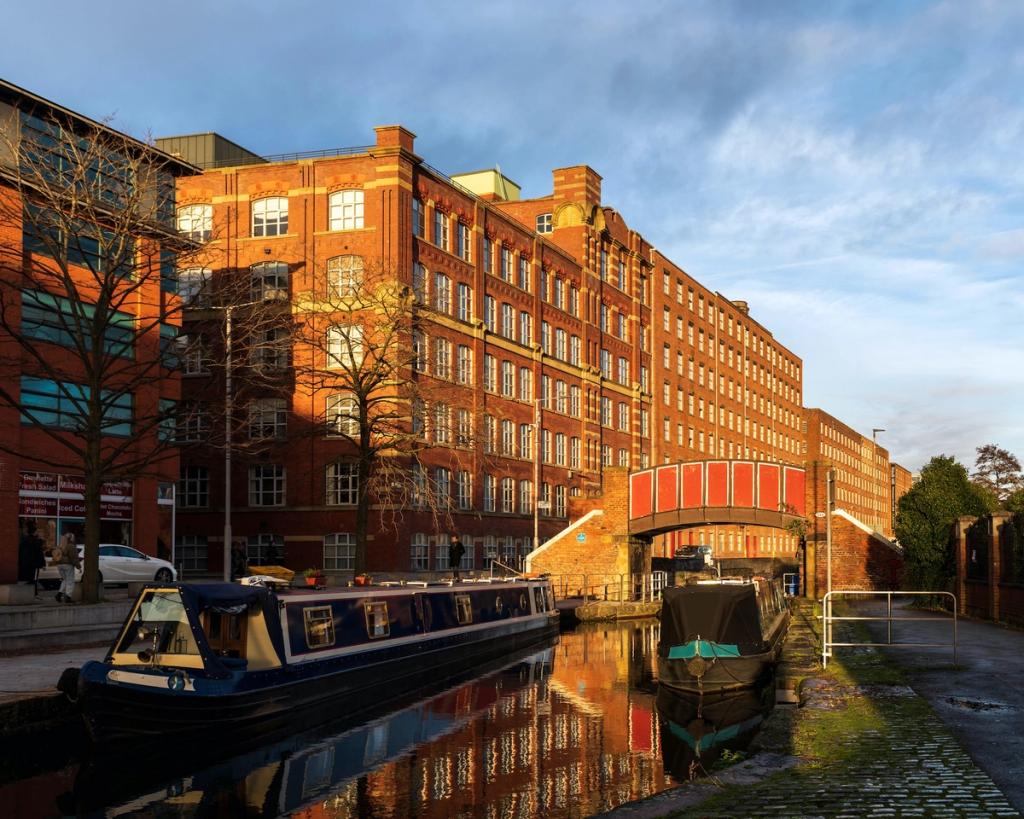What's the difference between freehold and leasehold?
Introduction
When purchasing property in the UK, buyers will inevitably encounter the terms 'freehold' and 'leasehold'. These refer to the two predominant forms of property ownership in the country. Deciding between freehold vs leasehold can have major legal and financial implications for the buyer.
We'll take a look at freehold and leasehold ownership models in the UK, and define exactly what each term means and how they compare. You'll learn about the benefits and drawbacks of each type of ownership. We'll also discuss when and where you're likely to encounter freehold or leasehold properties.
To make an informed decision, it's important to know how factors like property values, fees, and contractual obligations differ.
Defining the Two Main Types of Property Ownership Subchapters:
Freehold Ownership Fully Explained
Freehold ownership gives the buyer outright ownership of the property and land indefinitely. With a freehold property, the freeholder possesses the building and land forever, until they choose to sell it or it's inherited. This ownership has no time constraints.
Owning the freehold provides full control over the property. The freeholder can make alterations and improvements without requiring approval from a third party. They are responsible for the property's maintenance and upkeep.
Freeholders have complete freedom in terms of use and modifications, as long as they follow the law. There is no obligation to make payments to renew ownership. The property can be rented, redeveloped or sold at the freeholder's discretion.
What Leasehold Ownership Really Means
With a leasehold, the buyer purchases the rights to live in the property for a fixed period. This is formalized through a lease contract with the freeholder who owns the land and building. The leaseholder does not own the property indefinitely.
The length of lease agreements varies widely, typically from 99 years to 999 years initially. During the lease term, the leaseholder must pay ground rent annually to the freeholder and abide by the contractual terms.
When the lease expires, ownership reverts back to the freeholder. The leaseholder can negotiate to renew the lease, usually at a substantial premium. If not renewed, they must vacate the property after the agreed fixed period.
Key Differences Summarized
The primary differences between freehold and leasehold come down to duration of ownership, level of control, and financial obligations attached. The freeholder possesses the property forever while the leaseholder has time-limited occupancy rights.
The freeholder has full control over the property and its usage. The leaseholder must adhere to conditions set out in the lease agreement regarding modifications. Freehold ownership is unconditional once purchased while leasehold comes with contractual terms.
Financially, freeholders have no ongoing payments associated with the property. Leaseholders must pay ground rent annually and renewal fees to continue occupying the property when their lease expires.
In summary, freehold represents permanent ownership and control whereas leasehold grants temporary usage that is contractually restricted. This affects factors like property values, saleability, modifications and living costs long-term.
It is worth noting that freeholders may still have to pay a service charge on their property, even though they own the freehold. Service charges cover the maintenance and repairs to shared communal areas like hallways, gardens, lifts, etc. in developments with multiple occupants. Service charges are very common in modern developments in the UK. These charges are paid to the management company responsible for shared spaces. So while freeholders have outright ownership, they may still pay service charges depending on the property type and amenities.
The Benefits and Drawbacks of Each Model Subchapters
Why Freehold is Usually Preferred
There are several major benefits to freehold ownership that make it the most desirable option for most buyers. With a freehold property, the owner enjoys complete freedom and control over the asset. They can make any changes to the property or rent it out without requiring permission or consent from another party. The freeholder is not bound by any usage restrictions on what they can do with the property.
One of the biggest advantages of freehold is that the land is owned indefinitely. It truly belongs to the holder forever and can be passed down through generations as an inheritance if so desired. This provides long-term security that the property will remain in the family.
Additionally, freehold owners do not have to pay any ongoing costs associated with the property once purchased. There is no annual ground rent to budget for, no renewal fees, and no lease extension premiums required. This avoids the additional expenses that come with leasehold ownership over time. Freehold homes also typically hold their property value better in the long run and are easier to resell at maximum value.
The permanent ownership gives buyers confidence that they are investing in an appreciating asset. Owners can also freely make renovations or develop the property as they wish without constraint, potentially increasing the home’s worth and return on investment.
When Leasehold Might Make More Sense
While freehold ownership has many advantages that make it preferable for most, there are some situations where opting for a leasehold instead can make sense for a buyer. For those purchasing flats or apartments, leasehold ownership is very common as there are often multiple owners in larger developments. Shared ownership works better for apartment buildings, so the freehold may simply not be available even if desired.
For buyers who only plan on living in the property for a relatively short period and foresee selling in a few years, a lease with a shorter term may suit their needs sufficiently.
Additionally, leasehold properties usually come with a lower upfront cost which can aid budget-conscious buyers, especially first time home owners. The leaseholder also holds less responsibility in terms of ongoing maintenance, as external aspects like the building facade and roof are the freeholder’s duty to repair. Leaseholders do get the first right of refusal if the freeholder decides to sell the property. This allows them to purchase the freehold first before it goes on the open market.
Financial Implications to Understand
When weighing up freehold vs leasehold, it’s crucial to understand the key financial differences between the two ownership models. Leaseholders must factor in ongoing ground rent payments annually for the entire duration of their lease, which can add up substantially over many decades. There are also high premiums to be paid when renewing or extending a lease upon expiration. In contrast, freehold owners have no recurring costs associated with keeping ownership of their property indefinitely.
Lenders may also place restrictions on mortgage financing for leaseholds with brief remaining terms. All property owners can expect to pay service charges related to shared communal facilities. But when it comes to value retention and reducing supplementary costs, freehold models give buyers the peace of mind that leaseholds do not.
Where You're Most Likely to Encounter Each Type
Freehold Dominates House Sales
When purchasing a typical standalone house in the UK, it will most likely be sold on a freehold basis. Individual suburban homes are almost always freehold properties because they sit on their own plot of land that is included. The buyer of the house acquires ownership of both the dwelling and surrounding garden indefinitely.
Semi-detached and terraced houses are also usually freehold as well, even though they share walls and boundaries. Townhouses and bungalows predominantly follow freehold ownership too, as each unit has its own exterior walls and ground space. For these common house styles, freehold reigns supreme in ownership structure across the country.
Leasehold More Common for Flats and Apartments
In contrast to houses, flats and apartments are far more likely to be leasehold properties. Most apartment buildings contain multiple flats owned by different leaseholders. The freehold is retained by the building owner or management firm who grants individual leases. High-rise blocks of flats almost exclusively operate on a leasehold basis. The lease arrangement better facilitates shared ownership, facilities, and costs between residents. Lease terms vary among flat owners depending on when occupancy began. But leasehold allows apartment complexes to be divided among owners with shared responsibilities.
Other Scenarios Where Leasehold Occurs
Aside from apartments, there are some other property scenarios where leasehold ownership is prevalent. For land or plots without existing structures, the site may be leasehold. This allows builders to construct housing on leased land. Some retirement properties are leasehold to provide inclusive amenities and care through a management company. Parking spaces, garages, and moorings for boats also regularly operate as leaseholds. Additionally, households that opt for shared ownership schemes acquire the percentage leasehold equal to the portion they paid for. So while not as common for whole houses, leasehold still occurs in specific settings.
What is a flying freehold?
A flying freehold is another variation of property ownership that sometimes occurs. This situation arises when part of a property overhangs or covers land or buildings not in its ownership. For example, if an upper floor of a house protrudes over a neighbour's extension or passageway, the overhanging section is known as a flying freehold. The owner of the main property does not own the land underneath the overhanging structure. Flying freeholds can cause legal disputes over rights, maintenance, and repairs for the shared spaces, which may be off-putting to some buyers. In some older properties, flying freeholds exist as quirks of the architecture layout and ownership boundaries.
Researching the Freeholder and Contract Terms
For potential leaseholds, conduct thorough research on the property’s freeholder and examine the contract word for word. For apartments, the freeholder may be a large developer you can easily vet. For land or shares, it may be an individual. Check their reputation and track record managing leaseholds. Also scrutinize the lease’s fine print. Be aware of the exact ground rent amount and any clauses around maintenance duties, restrictions on alterations, renewal conditions, and termination provisions. The more you understand about the freeholder and legal obligations upfront, the fewer surprises later.
Consulting Professionals About Your Situation
Lastly, seek out expert guidance tailored to your particular property purchase scenario. Your solicitor can advise around the strength of the lease and associated risks. Your financial advisor can assess the mortgage ability and long-term value implications. Speaking to the right professionals ensures you have all the information needed to determine if freehold or leasehold works best for your needs and current situation. They can provide objective insights you may overlook yourself.
The information provided in this article is for general informational purposes only. It should not be considered financial advice. Individual financial situations differ, so you should consult a qualified financial advisor for your individual needs.






